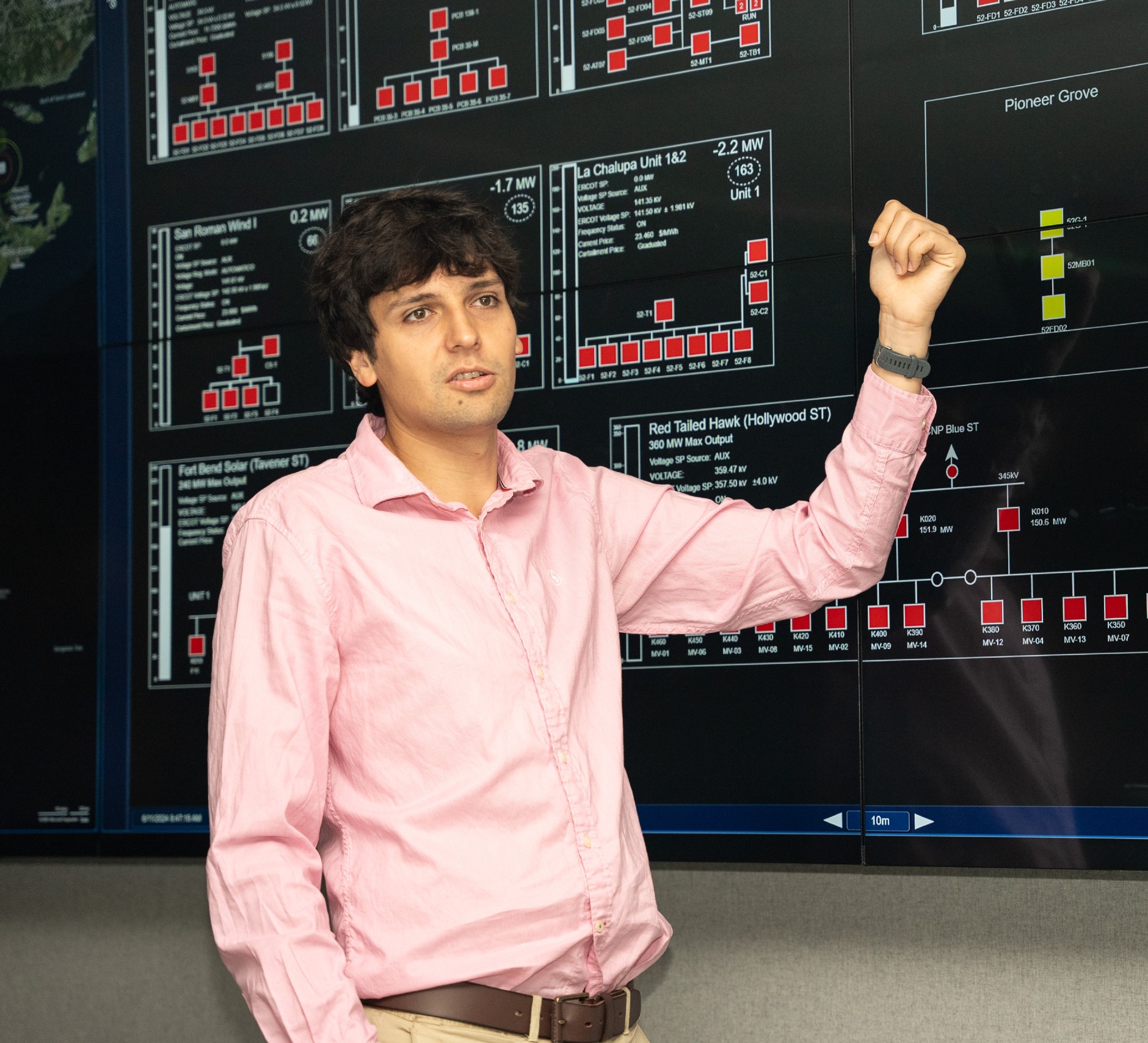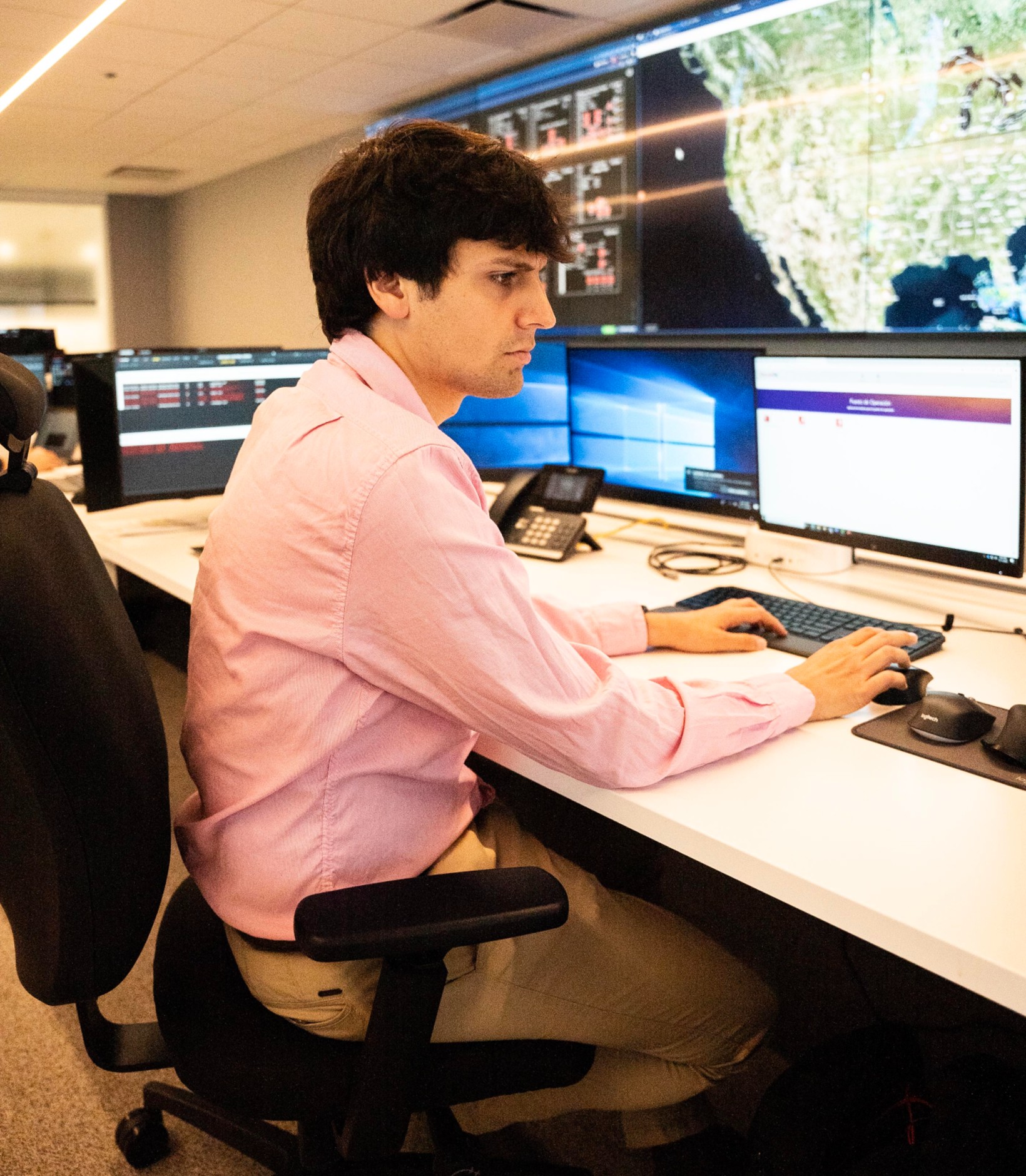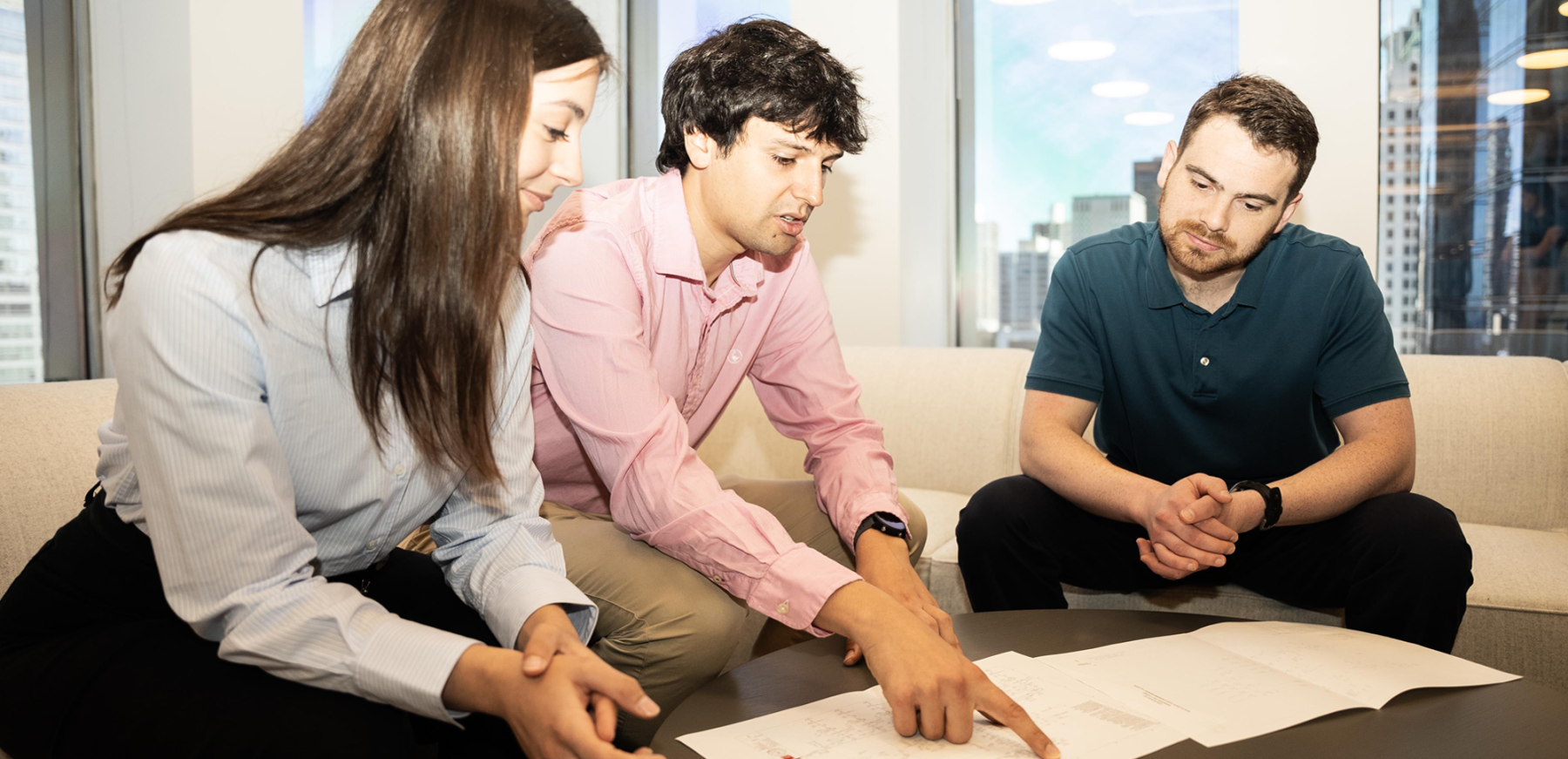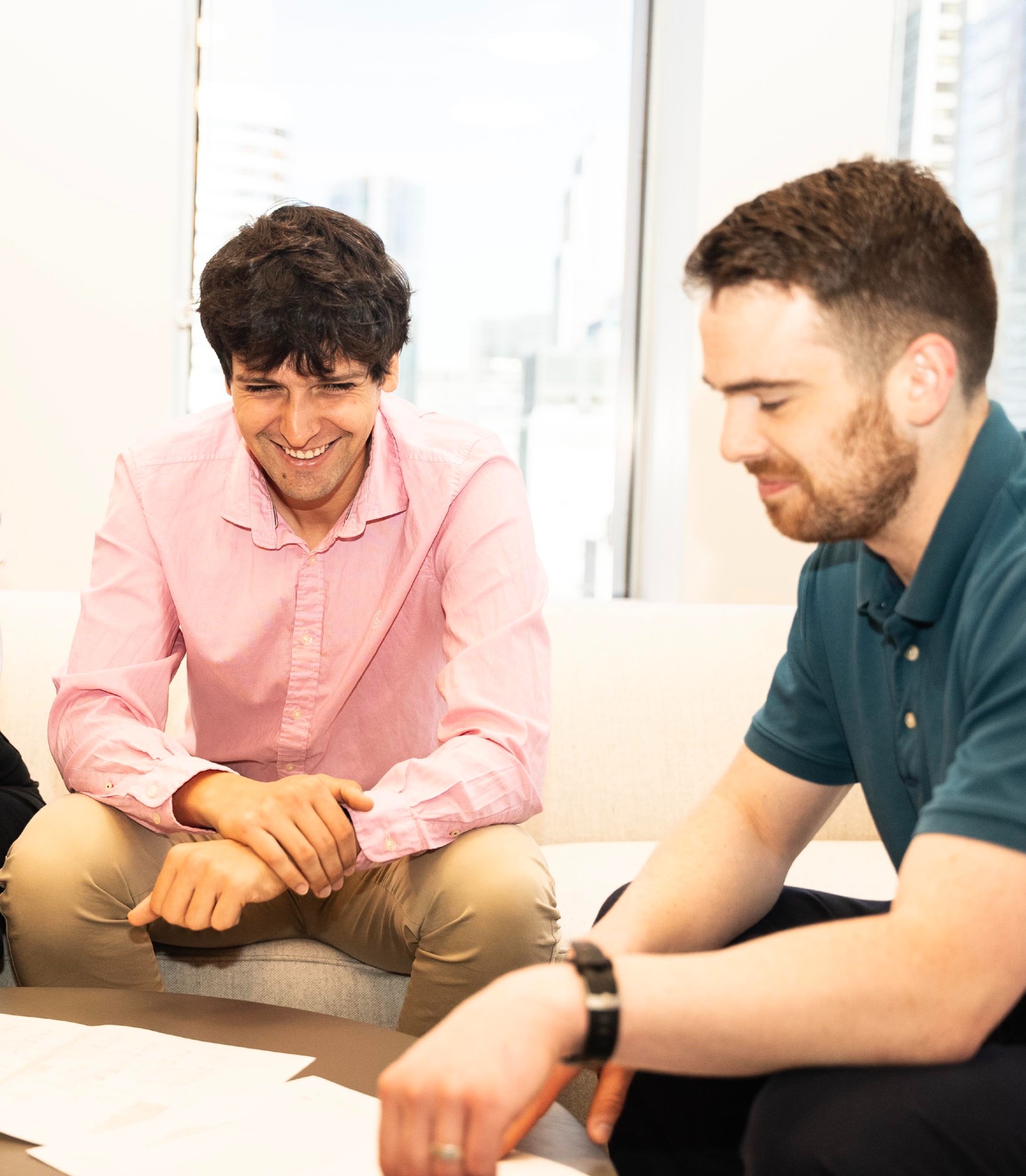Soon after, that manager returned to his native Jordan for family reasons and Ismael had the opportunity to take on more responsibility and to feel that they trusted him: “Obviously, there were my two bosses; it doesn’t mean that they left me alone, far from it, but it was an impact because I had to deal with day-to-day things with three months of experience and I learned a lot because I had the basics explained to me by that person”.
That time coincided with one of ACCIONA’s major milestones in the U.S.: “At that point we completed the first mega-battery in the country, ACCIONA’s first, which is Cunningham. I was present at the ancillary services tests when we reached commercial operation.”
He also witnessed the commissioning of ACCIONA’s largest photovoltaic plant in the world: Red Tailed Hawk, in Texas. “It was an incredible experience. I had the opportunity to be there when we powered the substation,” he says with infectious enthusiasm. And he speaks of the impact of seeing the workers on the ground every day, in the early hours of the morning: “It was very inspiring to be surrounded by, on average, four hundred people working, module installers; many of them humble people who had come to the U.S. wanting to make a living. […] It made an enormous impact on me. It showed me the real impact we have as a company.
“It was very inspiring to be surrounded by, on average, four hundred people working; people who had come to the U.S. at the time wanting to make a living. […] It showed me the real impact we have as a company.”
Ismael tells one story after another. He talks about his work at ACCIONA as if he’s been there for years, but in reality, it’s only been twelve months, but they’ve been very intense. So, do you feel you’ve been given autonomy? “Totally, the first day when I joined, my boss told me: ‘This is a position that requires you to have a lot of initiative, to be very proactive, because that’s the reality in many projects. No one expects you to know everything because you’re new, but we want everyone on the team here to lead because these are your projects.’”
That means moving quickly on a daily basis to expedite the many formalities, involving emails, phone calls, and sometimes a lot of ingenuity. “Just yesterday I was told about a co-worker on my team working in Canada who knew that the person who had to push a button, so to speak, was a neighbor of his. He found out and then, when he saw her walking the dog, he took out his button so he could talk to her,” he says with a chuckle.
“My way of returning that gratitude is to work and give my best every day”.
And he sums it up with these words: “I have always been left to my own devices, but with that sense of security of someone supporting me […]. To train yourself when you have just joined a company is incredible because they give you responsibilities, but without fear; you can do whatever you think is best because you have that safety net.”
What would be your final balance? “For me, it has been a unique opportunity, and I am incredibly grateful to the company and the team that hired me for giving me this opportunity because I know that it is not easy even with such young people. In a company like ACCIONA, you must give your all because they are companies that are on the cutting edge, they are high-performance, excellent companies […]. My way of repaying that gratitude is to work and give the best of myself every day.”
A debt of gratitude
The interview continues, and we talk about his desire to continue training, his love of basketball and sport as a social unifier, his plans for the future – to visit other countries like Australia and one day return to his country – in short, a whole life ahead of him. It is difficult not to leave things out, but the time has come to conclude.
Throughout the conversation, words such as “passion”, “vision”, “rigor”, “excellence” or “responsibility” have been mentioned, but Ismael has also given an insight into another term of great importance to him in many of his reflections: gratitude.
When asked about his inspirational figures, he once again conveys this sentiment: “Without a doubt, I would say that the person who has marked me the most was my grandfather. Because of his ability to keep learning, to maintain his curiosity and to live with very different people.” And he pauses: “He passed away unexpectedly two years ago, just before I came here, and the last gift he gave me was to pay for my year here in the United States. And for me that is also incredible, because everything I am living here today is thanks to him.”
At ACCIONA we need the best professionals on our team, people who choose to invest their talent in generating a positive impact on the planet. Want to sign up for this commitment?
See our job offers here



